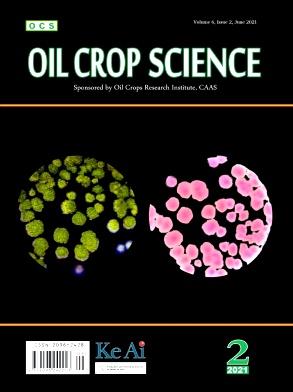A systematic identification of cold tolerance genes in peanut using yeast functional screening system
Abstract
Peanut (Arachis hypogaea L.) is a thermophilic crop, and low temperature leads to a significant reduction in annual yields. Despite a few cold tolerant germplasms or cultivars have been discovered and developed, molecular mechanisms governing peanut cold tolerance is poorly understood. Identification of keys genes involved in cold tolerance is the first step to address the underlying mechanism. In this study, we isolated and characterized 157 genes with potentials to confer cold tolerance in peanut by using a yeast functional screening system. GO (Gene ontology) and KEGG (Kyoto encyclopedia of genes and genomes) enrichment analysis of these genes revealed that ribosome and photosynthesis proteins might play essential roles in peanut cold response. Transcriptome results indicated that 60 cold tolerance candidate genes were significantly induced or depressed by low temperature. qRT-PCR analysis demonstrated that several candidate genes could be also regulated by salt or drought stress. Individual overexpression of two UDP-glycosyltransferases (AhUGT2 and AhUGT268) in transgenic yeast cells could enhance their tolerance to multiple abiotic stress. In conclusion, this study advances our understanding of the mechanisms associated with the cold stress responses in peanut, and offers valuable gene resources for genetic improvement of abiotic stress tolerance in crops.

 求助内容:
求助内容: 应助结果提醒方式:
应助结果提醒方式:


